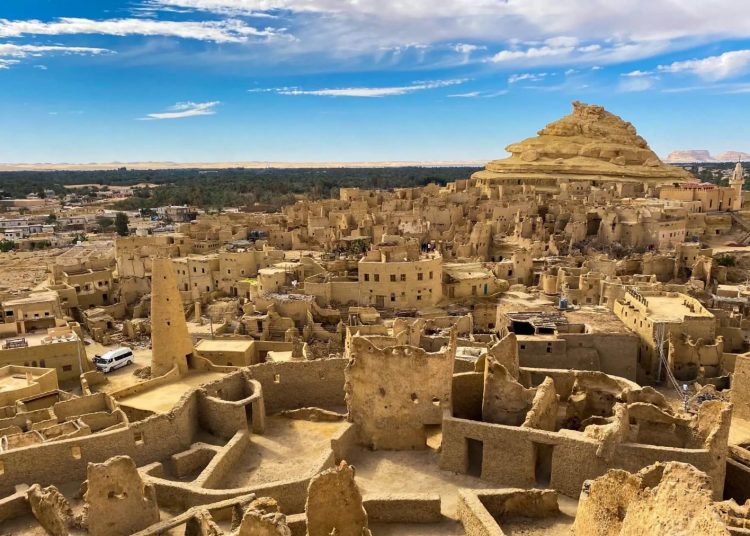The World Tourism Organisation announced that the villages of Siwa in Matrouh Governorate and Dahshour in Giza Governorate are among the best tourist rural villages for the year 2023.
The announcement came during the 25th WTO General Assembly in Uzbekistan on October 20.
“This recognition not only celebrates their timeless beauty but also acknowledges their commitment to sustainable tourism practices and their contribution to Egypt’s rich cultural heritage,” said Ghada Shalaby, Deputy Minister of Tourism and Antiquities.
The Best Tourism Villages Initiative was launched by UNWTO in 2021, as part of the UNWTO Tourism for Rural Development Programme.
The programme nurtures development and innovation and in rural areas. According to the UNWTO’s website, this initiative recognises villages that have harnessed tourism as a catalyst for their development and well-being and lead the world in preserving landscapes, cultural diversity, local values and culinary traditions.
This prestigious award is expected to elevate the international profiles of both Siwa and Dahshour, attracting more travellers seeking authentic cultural experiences and responsible travel practices,” Shalaby said.
She told local media that the Tourism Ministry’s efforts to develop Dahshour rural tourist destination began in 2013 in cooperation with the UNWTO.
Together, Shalaby explained, they rehabilitated the tourism infrastructure of Dahshour and implemented a training programme for 3,400 members of the local community. The programme included several workshops on different topics, such as the importance of tourism to the national economy, simplified English language for Dahshour locals, managing solid waste and tourism activities.
“The recognition of Dahshour and Siwa villages as UNWTO Best Tourism Villages for the year 2023 is an opportunity for Egypt to promote a new pattern of tourism which is rural tourism,” Egyptian Tourism Federation former chief Elhami el-Zayat told this newspaper:
“Rural tourism is a type of tourism activity in which the visitor’s experience is related to a wide range of products generally linked to nature-based activities, agriculture, rural lifestyle and sightseeing,” el-Zayat said.
He went on to say that rural tourism comprises a wide range of possible activities, including gastronomy, visits to natural and cultural heritage hotspots, practicing sports, acquiring handicraft.
El-Zayat regarded the impacts of rural tourism as positive in terms of local development. This includes the reversal of migration from rural to urban areas given that rural tourism entails the creation of employment opportunities in rural areas and retention of the workforce. For this reason, public policies of different countries have looked to tourism as a way to develop rural areas, he added.
“Rural tourism can be truly a force for empowering local communities,” he said.






Discussion about this post